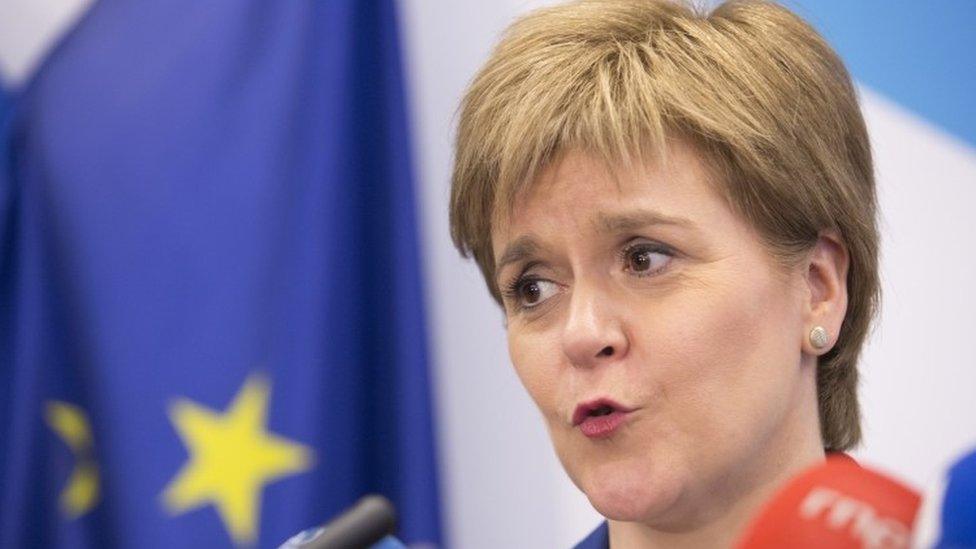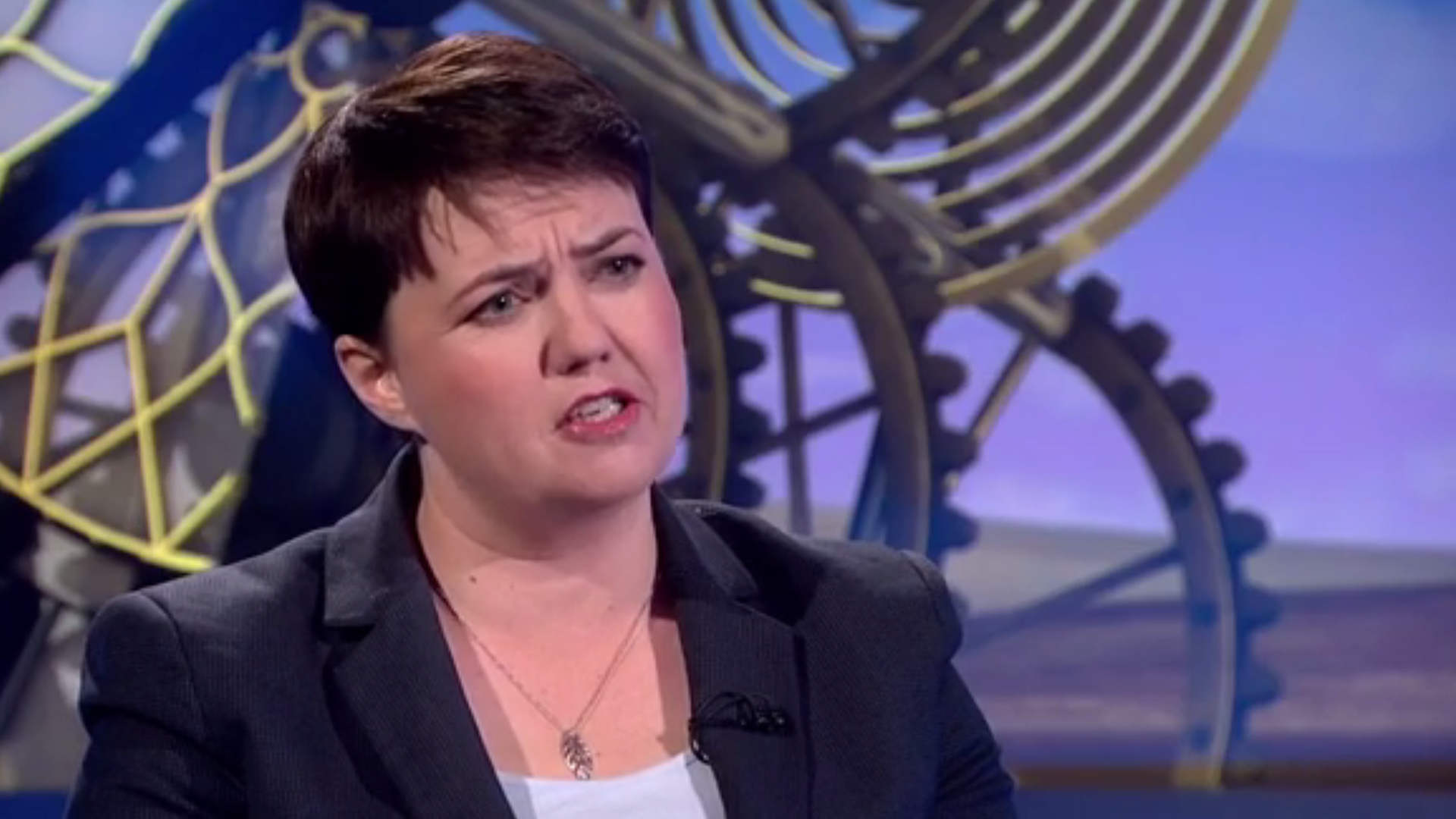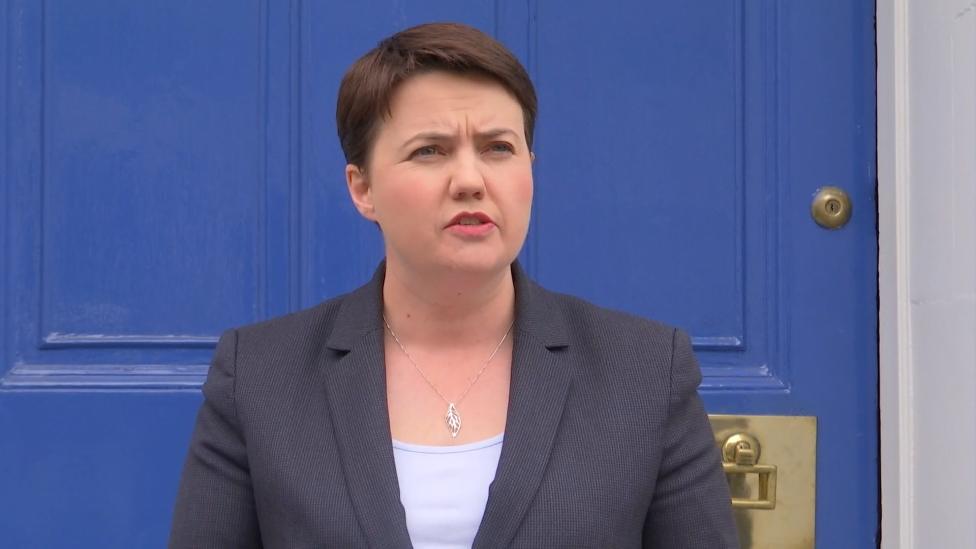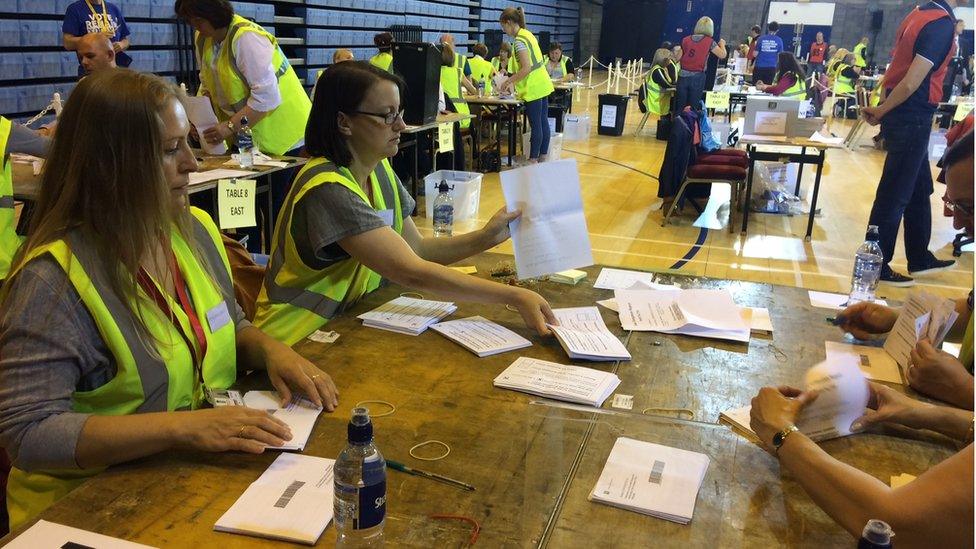Ruth Davidson urges Theresa May to have 'positive engagement' with Scotland
- Published
Ruth Davidson: "I think it is important that any PM engages in a positive manner with devolved legislations."
Scotland's Conservative Party leader Ruth Davidson has told Theresa May she should have "positive engagement" with the SNP-run Scottish government.
The No 10 meeting took place ahead of a speech by the MSP in which she will say holding a second Scottish independence referendum would be "irresponsible".
Ms Davidson said she chatted with Mrs May, who will become PM on Wednesday, about our "future work together".
Scotland's first minister has also spoken about Mrs May's new role.
Nicola Sturgeon said she was "determined to work constructively wherever possible on issues of common interest and concern".
She added: "Top of those is the issue of our continued place in the European Union, and I expect early engagement with the incoming prime minister on that subject as we look to maintain Scotland's EU status, in line with the democratic wishes of the people of Scotland."
Ms Davidson was in London where she met not only Mrs May but outgoing PM and Conservative Party leader David Cameron.
He tendered his resignation after the UK voted for Brexit by 52% to 48%.
In Scotland people voted by 62% to 38% for Britain to retain membership.
Following the Downing Street meeting, Ms Davidson told the BBC's Norman Smith: "I met with both the PM and with Theresa May afterwards to thank the PM for his work in government and also to talk to Theresa about our future work together and the way in which she, and her new government, can engage with Scotland.
"I suggested very strongly and she agreed to make sure there is constructive and positive engagement with the Scottish government it would be a real priority there. I think it is important that any PM engages in a positive manner with devolved legislations."
Ms Davidson added that she discussed with Mrs May the importance of the single market to Scottish business, along with the need to "champion defence jobs north of the border".
'No groundswell for Indyref2'
Later Ms Davidson will address journalists at Westminster in which she will say that a second independence referendum is "not in the best interests of Scotland".
Ms Sturgeon has already said the European referendum result and Scotland's vote to stay in make another ballot on Scotland leaving the UK "highly likely".
Ms Davidson will say: "The SNP is, as usual, trying to seize on a moment of doubt and uncertainty to declare that the shining star of independence is the answer.
"And it's trying to claim that, as a result of Brexit, there is now a massive groundswell for a second independence referendum.
"This is simply not true. Even after the EU vote, only four in 10 people in Scotland say there should be an independence referendum."

Nicola Sturgeon has said another ballot on Scotland leaving the UK is "highly likely"
The Tory MSP will claim that "bluster" from senior SNP MPs that a second referendum will now happen is "utterly unjustified and it is completely irresponsible".
However, Ms Sturgeon believed that "words of contrition and apology" from Ms Davidson would be "more appropriate".
She added: "It is the selfish and reckless irresponsibility of the Tories which has brought Scotland to the brink of being taken out of EU against our will, with all the damage and upheaval which that would entail for many years to come for our economy, society, rights and place in the world."
Angela Eagle, who is challenging Jeremy Corbyn for the leadership of the UK Labour Party, told BBC Radio Scotland's Good Morning Scotland programme that Scottish independence was not the answer.
She said: "I think that we need to ensure that we can move forward as a country. I understand the problems that the EU referendum vote caused both in Scotland and Northern Ireland but I believe that we are better if we stick together.
"The people have voted. We've now got to see what we can do to create the best possible circumstances when we leave the EU that do the least damage. I fought very hard on the Remain side of the argument, but unfortunately that has been lost and we have to recognise that democratic reality."
- Published3 July 2016

- Published24 June 2016

- Published24 June 2016
